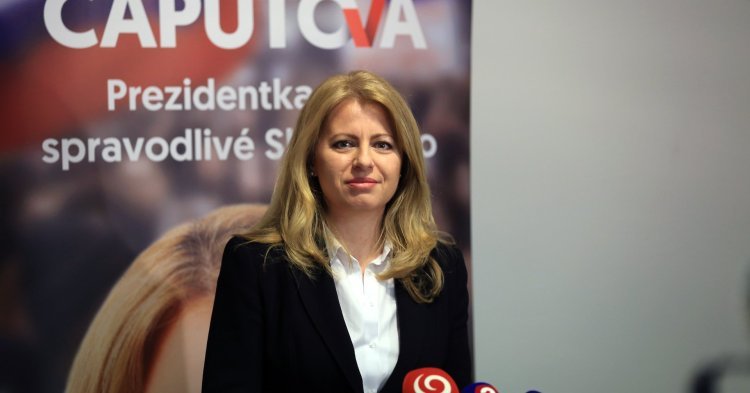With Harvey Weinstein sent to prison and multiple actors speaking up against powerful men, (such as in the latest case of Evan Rachel Wood against Marilyn Manson), debates on sexual assault or harassment might seem like old news. As TNF has reported in the past, the #MeToo movement impacted Europe as well, although this impact isn’t the same in all countries. Especially in Eastern Europe, the debates about #MeToo or sexual assault/harassment tend to be short-lived. So, let us focus on the ‘troublemakers’ of the Visegrád Four (V4) – The Czech Republic, Hungary, Slovakia, and Poland - how they tackled #MeToo, and where the debate on sexual assault/harassment is in these countries 4 years after the beginning of the #MeToo movement.
The Czech Republic and a political scandal
The Czech Republic is a country where sexual assault often gets downplayed or ridiculed and has been fairly unscathed by the #MeToo movement. Until now, that is. On 25th May 2021, the joint investigation by two Czech publications, A2LARM and Deník N, resulted in an article containing the testimonies of several women who accused politician Dominik Feri of sexual harassment and assault. The accusations range from verbal insults to unwanted physical contact and sexual coercion. The politician denied the accusations, apologised for possible “inappropriate” behaviour towards women in the past and promptly resigned.
At his 24 years of age, Dominik Feri was the youngest member of the Chamber of Deputies and also the first Black MP in the country. Through his presence on social media, as well as his lectures at various high schools, he has encouraged youth political engagement in the Czech Republic. During the COVID-19 pandemic, he was posting the latest news on the restrictions on his Instagram account, offering an alternative to the chaotic communication of the crisis on the side of the government. With over 1 million subscribers, the account is now one of the most popular in the country.
The start of a debate
A supporter of the #MeToo movement, Feri is the first politician accused of sexual misconduct, making this case the most prominent sexual harassment/assault case in the country. As such, it has attracted a lot of attention. Some politicians, many of them from Feri’s party TOP 09, a pro-European liberal-conservative party, initially rejected these allegations, arguing that the presumption of innocence should be upheld until the justice system decides otherwise. Others questioned the veracity of the accusations. The former leader of TOP 09 then downplayed the accusations, saying that it was “normal that a boy wants to get a girl to bed”. Commenters on social media then often saw Feri’s alleged behaviour as unproblematic, blaming the alleged victims for being naïve or for reporting sexual assault or harassment too late.
Despite the negative or outright sexist comments, these allegations started a debate that is uncommon in the Czech context. It highlighted the current legal definition of rape, as well as the lack of education the police, judges, and lawyers dealing with sexual crimes get. Concepts, such as secondary victimisation or trusting the victims have appeared and started to be discussed. The topic gathered so much attention that the previously hesitant Chamber of Deputies decided to change the definition of rape to be based on consent, and not the threat of violence or abuse of the inability to defend oneself.
Although views on sexual assault and harassment won’t change overnight, it seems that the tide is turning in the Czech Republic. All we have to do is wait to see what comes of it.
Slovakia, the president, and no consequences
Similarly to its Western neighbour, Slovakia has also long been untouched by serious debates on sexual assault or harassment. There have been, of course, women speaking up about their experiences. The most notable man associated with the #MeToo movement in Slovakia was journalist Eugen Korda who has been accused of inappropriate behaviour and remarks regarding women. However, the case fizzled out, as his behaviour was allegedly mostly limited to sexualised remarks and not violence or assault.
The issue of sexual harassment sparked more attention in June 2020. Maroš Kramár, a popular actor and entertainer appeared in a TV show where celebrities guess the occupations of various guests. In the show’s credit sequence, the audience saw Kramár touching the show’s make-up artist from behind, acting as if it were a joke. This moment then started a debate about the extent to which Slovak women experience sexual harassment and how unequal the power balance is between men and women in such situations.
The case culminated in the publication of the statements of 22 Slovak women who shared their experiences with sexual assault or harassment. One of them was the current president Zuzana Čaputová.
The results, however, are questionable. Slovakia did start a debate on what sexual harassment and assault are and how widespread they might be in the country. But so far, no actual impact has been felt. While Kramár received much criticism for his behaviour, it seemed to have no impact on his career.
The case of Hungary
In Hungary, the name most prominently connected to the #MeToo movement is that of theatre director László Marton. He has been accused by actor Lilla Sárosdi of sexually assaulting her in the past. Multiple other women then came forward with similar testimonies. While initially threatening to take the matter to court, Marton ended up apologising to Sárosdi. More stories followed about figures in the arts and theatre.
Another influential case was the one of journalist Henrik Havas. The allegations became public on the day of launching Havas’ new book on the Jobbik opposition politician Gábor Vona. A former reality show participant Éva Baukó accused Havas of abusing his power before finally firing her from the reality show. However, this case of alleged misconduct is problematic, as there is suspicion that Baukó’s accusation was staged and paid for by another TV station. After Baukó, several other women also came forward with their accusations against Havas, but the debate surrounding this case seemed to have focused on the possible political motivations behind it, rather than the allegations themselves.
While these cases certainly started an unprecedented debate on what sexual assault/harassment is and its unacceptability in society, this debate quickly disappeared.
The situation in Poland
Poland is an interesting case within the V4, not just because it is the only country of the four which has signed and ratified the Istanbul Convention. In 2017, the country had its own cases of sexual assault allegations, mostly connected to the Bagatela Theatre in Krakow and the Centre for Theatre Practices, “Gardzienice”. The movement also involved the cases of two left-leaning journalists – cases which were then framed in terms of a “feminist manhunt”. However, just like the rest of the V4 countries, the debate on sexual assault and harassment calmed down after several public accusations.
This debate might have been overshadowed by the recent sexual scandals involving Catholic priests who have been accused of molesting children. Similarly, last year’s protests against the government’s tightening of abortion law seemed to have dominate the discourse in the country.
Conclusion
The V4 countries still seem far from addressing sexual assault and harassment properly, although most of them have been through various stages of public debate on the topic. In Slovakia and the Czech Republic, the issue of sexual assault recently re-emerged, but it is unclear if it brings tangible change. The other two countries – Poland and Hungary – are much farther behind, struggling both with their own authoritarian leaders and the lack of a debate on sexual assault.


Follow the comments: |
|
